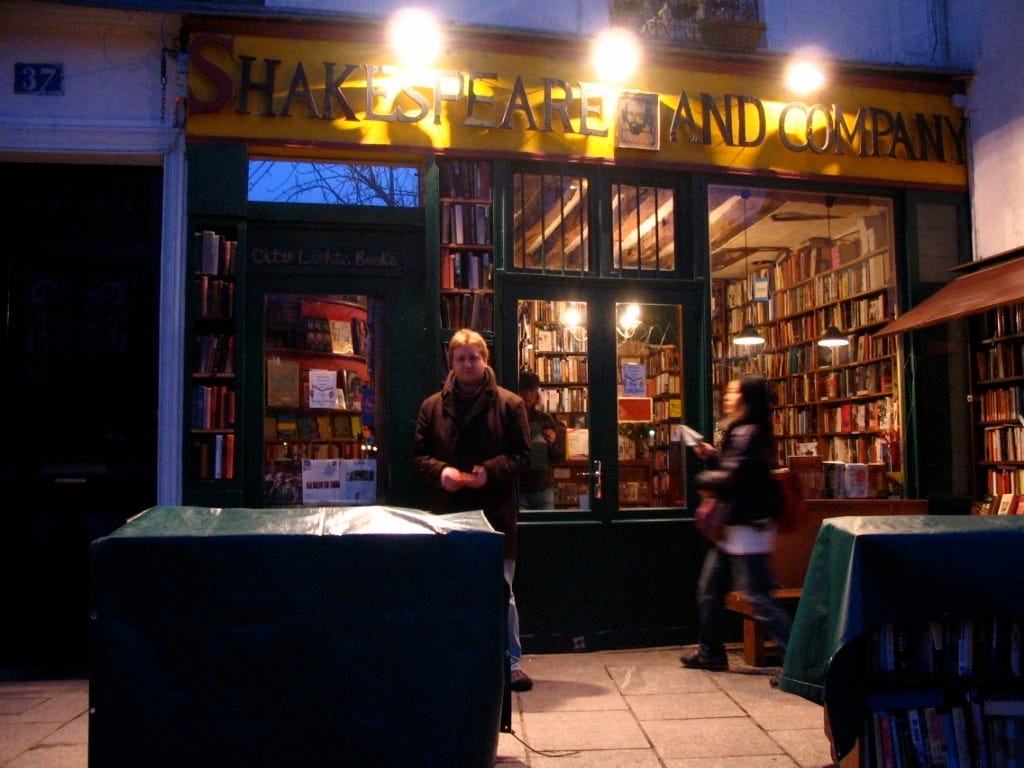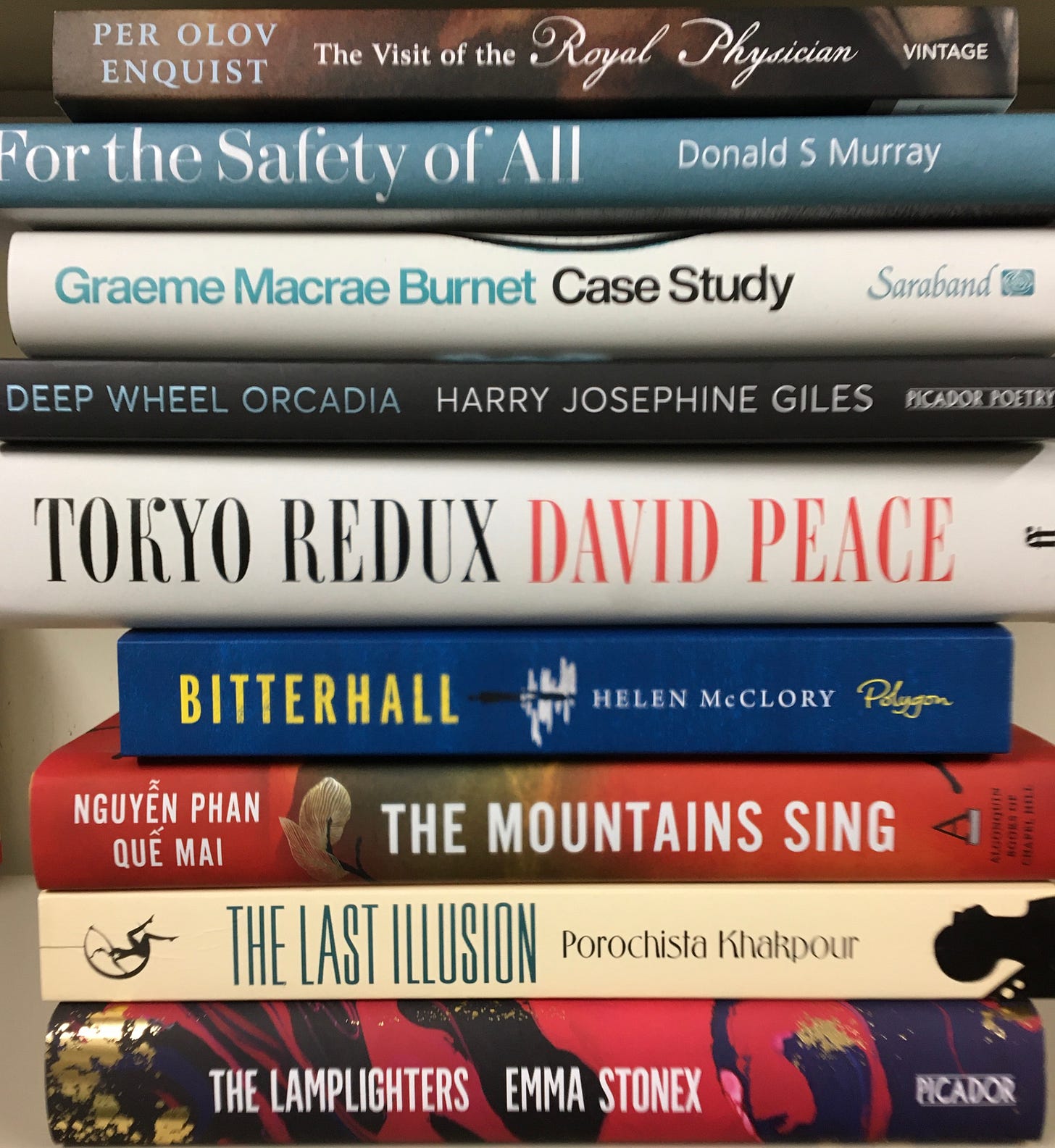Another Interminable End of Year List Article
I don’t know about the rest of you but by the end of the year I can barely remember January. I have friends who seem perfectly able to attach dates to things but for me the past blurs into one continuity. It’s why the structure of The Only Gaijin in the Village is the way it is, or at least partially: I don’t connect to memories by date: X happened in May 2015 which was the same time as… I marvel at people who can pinpoint this album as an October 96 release while knowing that film hit cinemas in the summer of 84. Not me.
For anyone who has read Only Gaijin, you’ll have noticed that the “a year in rural Japan” is a flat-out lie, a subtitle added by the publisher because it’s not immediately clear from the title whether the book is fiction or not. It purports to follow a year but is really a tangle of anecdotes that twist and fold back on themselves. Some readers complained that it is repetitive - I’d argue it isn’t repetition, rather it deliberately recrosses some of the same points in order to pick up new roads. There is always method to the madness, a point to the tangents.
All of this is by way of saying thank gods for Goodreads, because what I read in early 2021 is now part of the great mush of things I have read in my lifetime, which makes an end of year list particularly difficult. Goodreads is the best way I have found to keep track of what I’m reading without resorting to notebooks or tattoos. It’s not everything I’ve read this year, I should say, as it doesn’t include the couple of dozen unpublished novels I’ve read as part of my editorial work, or the advanced review copies of books that aren’t yet up on Goodreads, but it’s pretty damn close.
As I read and write about books for some of my supper, in this article I’m going to focus only on things I’ve read for pleasure, books I’ve paid for out of my own pocket, and only books I would recommend to others. I’ve read a few absolute stinkers this year, but let’s allow them to slip quietly into obscurity.
New releases I thoroughly enjoyed this year include the excellent, award-winning Duck Feet by Ely Percy, the novella-tastic Rizzio by Denise Mina, unsettling short stories in Jane Alexander’s The Flicker Against the Light, and dystopian SF in Sarah Dobbs’s The Sea Inside Me technically a late-2020 release). Linda Cracknell’s The Other Side of Stone and James Robertson’s News of the Dead span history and made me despair at the state of my own prose. Red Pill by Hari Kunzru isn’t my favourite of his books but it’s still pretty damn good (White Tears is just that damn good). Tendai (T. L.) Huchu and Jenni Fagan brought the magic back to Edinburgh in The Library of the Dead and Luckenbooth respectively, while Ian Green overlaid the northeast of Scotland with a fantastical realm in The Gauntlet and the Fist Beneath.
Pre-2021 novels that I enjoyed include The Deadman’s Pedal by Alan Warner, Shuggie Bain by Douglas Stuart (worth the hype), The Boy Next Door by Irene Sabatini, The Chernobyl Privileges by Alex Lockwood, and The Kobe Hotel by Saito Sanki, translated by Saito Masaya.
Excursions into non-fiction worth mentioning were Underland by Robert Macfarlane, where his travels take him deep into the Earth, Quit your Band by Ian F Martin, who explores the subterranean music scenes of Tokyo. The Wandering Pine by Per Olov Enquist is a memoir in third person that had a profound influence on my thinking and my writing, as did The Displaced: Refugee Writers on Refugee Lives edited by Viet Thanh Nguyen, though in a very different way. Beyond by Stephen Walker, the story of Yuri Gagarin and the race to put a man in space showed that sometimes the best stories are those that really happened (though I found his book on Hiroshima, Shockwave, which I also read this year, less satisfying). Finally, Everything Passes by Chris Dolan made me yearn for travel once more.
Books I bought but have yet to finish include Graeme Macrae Burnet’s Case Study, Harry Josephine Giles’s Deep Wheel Orcadia, David Peace’s Tokyo Redux, Donald S Murray’s For the Safety of All, Per Olov Enquists’s The Visit of the Royal Physician, Helen McClory’s Bitterhall, Emma Stonex’s, The Lamplighters, Porochista Khakpour’s The Last Illusion, and The Mountains Sing by Nguyễn Phan Quế Mai. Basically, the above list is my plan for Winterval, as is buying a new phone for reasons made clear by this blurry photo:
All of these I recommend, but find your own way through the jungle of books out there. There is no such thing as a must-read book, or rather anything is must-read if it appeals to you. There’s a Murakami quote that suggests if you read the same things as other people, you’ll think the same things, which is something I tend to disagree with, since it presupposes that we all get the same things out of books. Equally however, you don’t need to read the Next Big Thing just because The Guardian is going weak at the knees; there are plenty of alternatives out there.
A reviewer of The Only Gaijin in the Village on Goodreads ranted at fellow readers, bemoaning people giving me five stars when that accolade was reserved for the likes of Dostoyevsky, the ranks of whom I am clearly not part. While he is correct in the later part, he completely missed the point of the Goodreads rating system and the concept of reviewing in general - there is no objectivity, no fixed categories that make The Devils a five-star book and 50 Shades of Grey… not. The aim is not that at the end of all things there will be a final league table of books - it’s simply a measure of how much each individual reader enjoyed that book. It is perfectly possible to enjoy “pulp fiction” more than a “classic”. I read The DaVinci Code immediately after Thomas Pynchon’s Mason and Dixon. Thomas Pynchon is a far superior writer to Dan Brown, but Mason and Dixon was, ironically, a long, hard slog while DaVinci passed the time with little effort (or enjoyment) on my part. How do we classify this difference, in a five-star system? We can’t, of course. In the end I wouldn’t recommend either book to people but for completely different reasons.
Tangentially, I’ve often thought that an interesting series (articles? podcast?) would be writers talking about the books that leave them cold. Not books they hate, or writers that they think are shite, but books where they recognise the craft, can understand why the book or the author is lauded by others, but which do nothing for them personally. Not the Dan Browns or Stephanie Meyerses of the world, but rather, for me,Phillip Roth, for example, or Kingsley Amis, writers who I wouldn’t say are shite, writers who can clearly craft a sentence, construct a book, tell a story, but who have nothing in particular to say to me, nothing that would make me seek out further reading. More controversially perhaps, Charles Dickens or Iris Murdoch, writers I’ve tried and found to be not to my taste. Not bad, just… not my cup of tea (an odd phrase for me to use, a non-tea drinker). I think it would be an interesting route into defining what, beyond simple craft, allows us to make connections with some books and not others, and would be a way of excavating a writer’s conception of the art. Or maybe we’d all just bitch about books we don’t like. Both approaches are valid, to steal a catchphrase from Rule of Three.
I seem to have got off topic, which is, of course, very on brand. If you’ve read any of these books, or want to recommend your own good reads from 2021, please do so in the comments. If any writers want to nominate their own meh-inducing classics, perhaps we can start a thread, or a podcast.
I’ll leave you with a piece of music by Rachel Grimes, a composer I’ve become slightly obsessed with this year. Postminimalism has become very much my bag, with Rachel Grimes at the top of my playlist, in particular The Clearing (from which this track is taken) and Through the Sparkle, a collaboration with French band Astrïd. I technically knew of Grimes through her work with the band Rachel’s and her collaboration with Aidan Moffat and R.M. Hubbert, without ever following the thread to see where it led. It was getting a copy of Through the Sparkle from Gizeh Records through their outstanding 10 CDs for £10 deal (yes, CDs, don’t format shame me) earlier this year that prodded her more directly into my awareness and now I listen to little else. Tangents: they always end up leading somewhere.




If I may paraphrase, you really nailed it that the quality of writing doesn't determine a good read as much as whether the writing speaks to you (or suits you, or entertains, etc.) Also, thanks for introducing Rachel Grimes's music.
I'm totally enjoying The Only Gaijin in the Village. It's like a nice companionable nature hike where the walk is good and steady but every now and then there's a marvelous bird, flower, or shiny thing in a turn of phrase or a cogent observation.